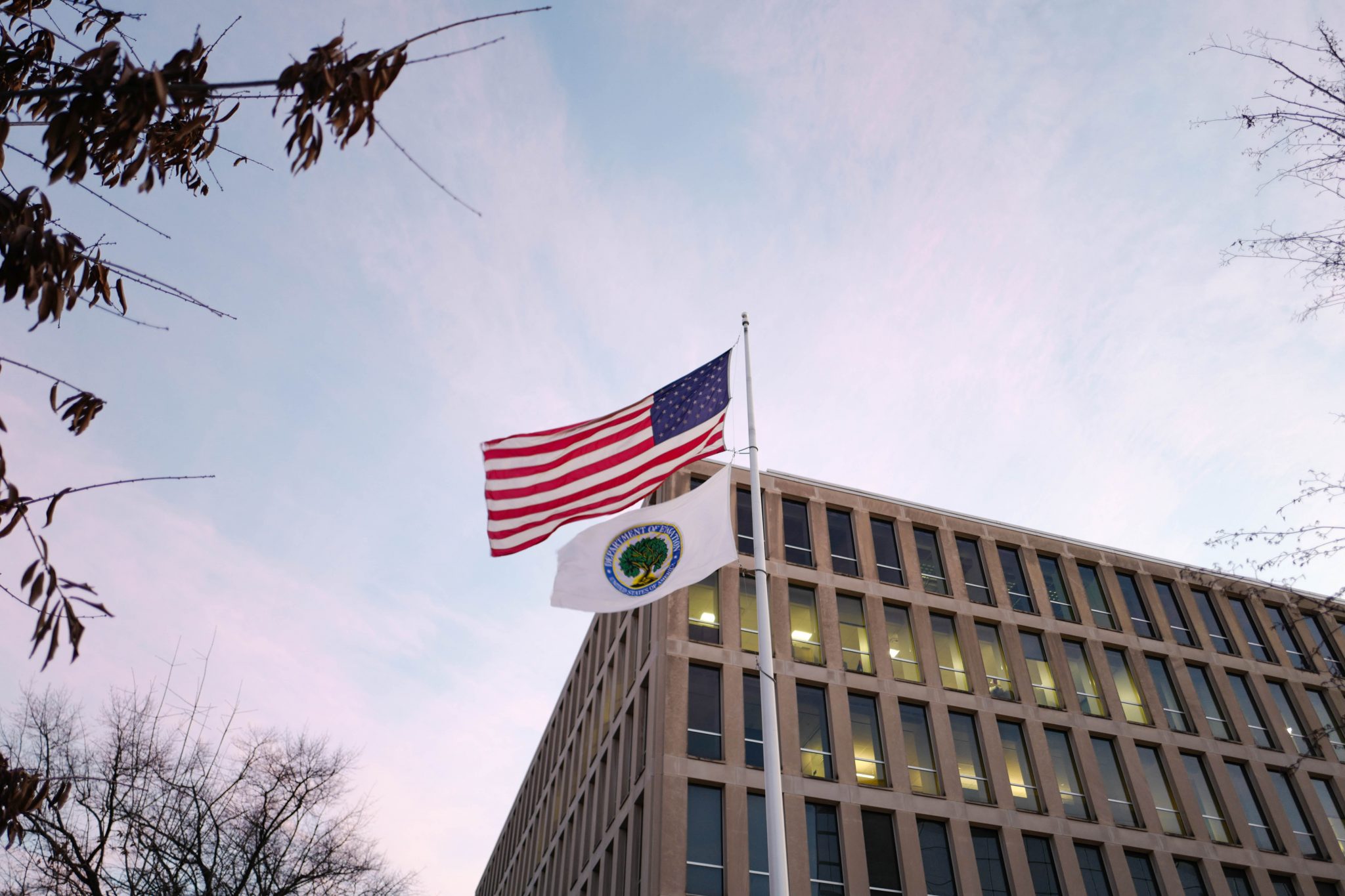University of Maryland experts and national higher education associations are monitoring potential changes to federal student aid and civil rights law enforcement after President Donald Trump’s call to dismantle the U.S. Department of Education last month.
Trump signed an executive order on March 20 directing education secretary Linda McMahon to close the department and redistribute its functions to state and local governments.
In a letter sent to education college faculty, staff and students on March 20, dean Kimberly Griffin wrote that “the legal and policy ramifications [of the order] are unclear, and executive orders cannot close federal agencies.”
“At the same time, I am deeply aware that if implemented, closing the [education department] will have real implications for students, the communities we serve, and the education profession,” Griffin wrote.
The education department does not control how schools operate or what curricula they teach, according to the department’s website. These responsibilities lie with state and local governments, the website said.
The department’s primary role in higher education is financial, according to its website. It oversees the federal student loan portfolio and provides nearly 10 million students with more than $120 billion “in grant, work study and loan funds each year,” the website said.
[U.S. education department to cut workforce in half]
Any attempts to shutter or shrink the education department could jeopardize students’ ability to apply for and receive financial aid, according to associate education policy professor David Blazar. They could also complicate university access to federal aid dollars, he added.
Craig Lindwarm, the senior vice president of governmental affairs for the Association of Public and Land-Grant Universities, said his organization is working to ensure students continue to receive the financial aid they need. The APLU represents nearly 250 public research institutions and state university systems, including this university and the University System of Maryland.
“The [education] department has underscored its intention to prioritize administration of student aid programs,” Lindwarm told The Diamondback. “So, our focus and our communications with the Department of Education is extending our hand and trying to ensure that they see public universities as a resource.”
The Maryland Higher Education Commission declined to comment on the order.
Although shutting down the department would require an act of Congress, the Trump administration has already taken steps to weaken the agency’s power, including cutting its workforce in half last month, according to the Associated Press.
Trump also announced plans on March 21 to transfer the federal student loan portfolio from the education department to the government’s Small Business Administration.
But some education advocacy groups cast doubts on the Small Business Administration’s ability to handle the portfolio because it announced significant cuts to its staff on March 21, according to the Associated Press.
According to a report from the education department’s Federal Student Aid office, the federal student loan portfolio houses $1.6 trillion in outstanding loans for about 43 million recipients.
[Trump’s plans to weaken education department could hurt higher education, experts warn]
Lindwarm noted that the Trump administration has not yet acted on moving the portfolio and Congress would likely “need to have a say” in the matter.
“Right now, it’s not clear that the Small Business Administration has the apparatus, so we certainly have lots of questions about how right now, that could successfully be achieved,” Lindwarm said
The education department also manages civil rights law enforcement at public schools such as this university through its civil rights office.
The office collects data and conducts research on discrimination in education, and administers guidance for schools to ensure equitable treatment based on age, race, gender, nationality and disability, according to its website.
Assistant education policy professor Meghan Comstock said changes to the education department could make it more difficult for research institutions, including this university, to access and compile civil rights data.
The education department also documents and investigates civil rights violation cases in schools.
But with the Trump administration’s recent efforts to limit diversity, equity and inclusion initiatives and protections for transgender people in schools, Comstock said, the definition of a “civil rights violation” has blurred, which could make it more difficult for the department to carry out its operations.
“Having a structure that investigates civil rights violations is important,” Comstock said. “But also what specifically they’re investigating and considering to be a violation is actually maybe more important.”
Lindwarm said the public and land grant universities association is still “trying to understand” Trump’s executive order and its implications before issuing formal guidance to its member institutions, including this university and the university system.
But it’s important for students and universities to prioritize communication during this time of uncertainty, Lindwarm added.
“I think it’s critical that public universities tell their stories,” he said.



